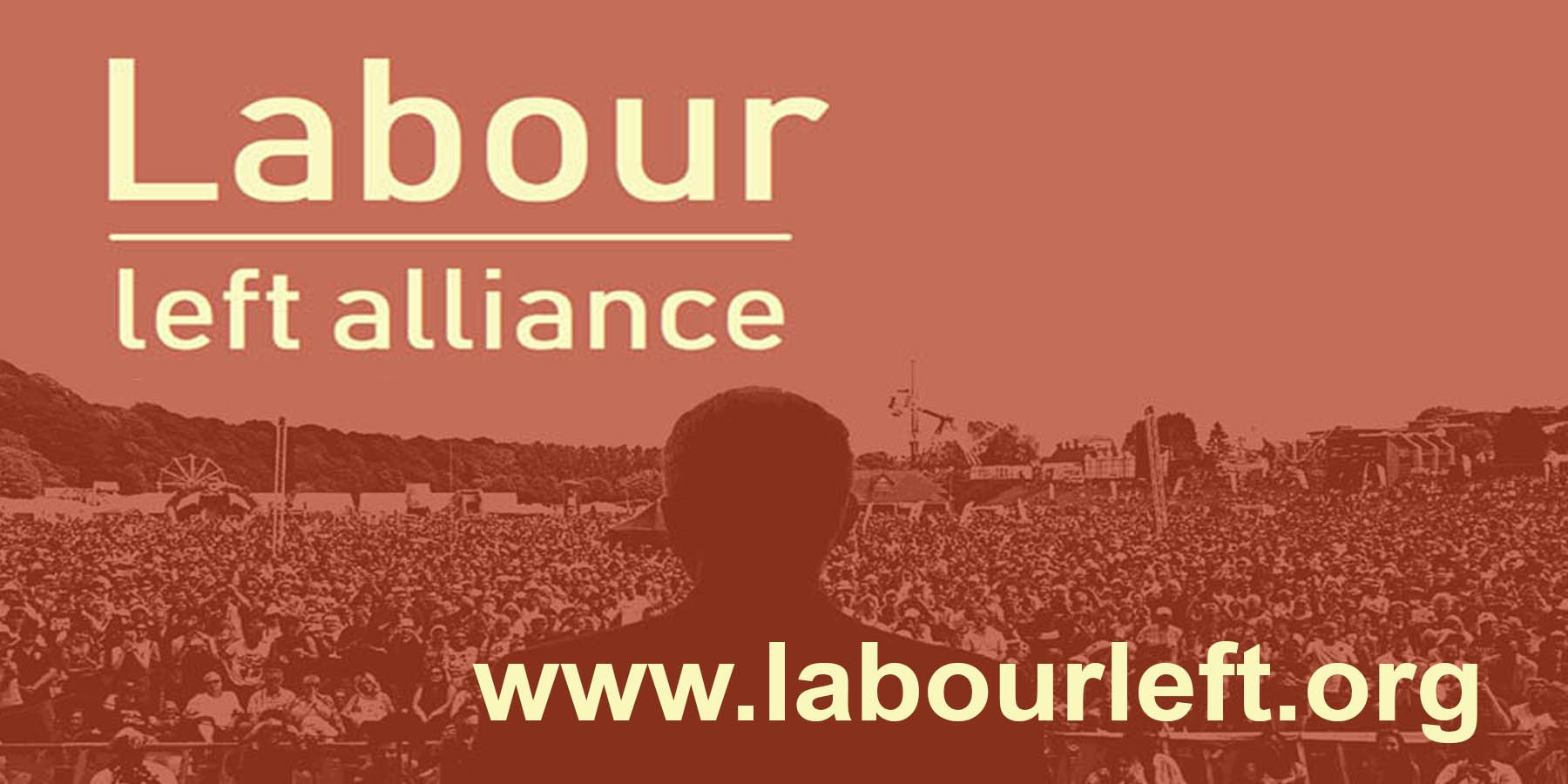Carla Roberts of Labour Party Marxists looks at some of the proposed rule changes and motions to be debated by conference
Due to a rule change passed at the 2018 annual conference, Constituency Labour Parties and affiliates that submit rule changes will no longer have to wait for a year for them to be debated. So this year’s conference agenda will feature rule changes that were submitted in 2019 as well as 2018.
The most significant of these is the motion submitted by Rochford and Southend East, Doncaster Central, and Wallasey (taking inspiration from Socialist Appeal’s campaign), which seeks to reinstate the following paragraph from the original clause four, discarded under Tony Blair:
To secure for the workers by hand or by brain the full fruits of their industry and the most equitable distribution thereof that may be possible upon the basis of the common ownership of the means of production, distribution and exchange, and the best obtainable system of popular administration and control of each industry or service.
This Fabian version falls far short of what is required, but it would certainly strike a blow against the Blairite right and mark a significant advance, which is why we recommend a vote in favour. However, in addition to campaigning for a far more inspiring formulation, the left should be highly critical of the fact that this motion leaves most of the existing clause four untouched: for example, this formulation upholds the current international order, which deserves to go into the dustbin of history:
Labour is committed to the defence and security of the British people and to cooperating in European institutions, the United Nations, the Commonwealth and other international bodies to secure peace, freedom, democracy, economic security and environmental protection for all.
We also note that according to The Times, the NEC meeting of September 17 has “set up a working group to examine changing the document” – ie, to kick Socialist Appeal’s proposals into the long grass. The NEC’s proposal will presumably be taken first at conference, which means that the motion from Rochford et al would automatically fall. This would be the worst possible outcome, so we hope delegates will vote against the NEC’s delaying tactic.
Membership
Moving on to the conditions of party membership, Labour International has proposed amendments. It wants to remove the requirement for members to be “subjects” of the UK: from now on they would merely have to be “residents”. This is certainly a step forward and worthy of support – and it also removes all reference to the length of time (“one year”) a person would have to be resident to qualify for membership. No bad thing.
For their part, Weaver Vale and Birmingham Hodge Hill CLPs propose to amend the ‘Procedural rules for party conference’ by giving all CLPs and affiliates the right to propose not only one motion, but also one amendment – either to motions or the constitution.
It is certainly undemocratic that conference currently has no right to amend motions and only vote ‘yes’ or ‘no’ – take it or leave it. Having said that, without a total reorganisation of conference, this proposal is almost impossible to implement, as conference motions are being merged and changed in the compositing process to a degree which makes some of them unrecognisable. Nevertheless, delegates should vote in favour of this principle.
In similar vein, Kingston Upon Hull North wants to remove the restrictions on the type of motions that are permitted. Currently those deemed to be ‘organisational’ are ruled out of order, on the grounds that only the national executive can propose them. So ‘organisational motions’ that instruct the NEC to speed up the trigger-ballot process or re-admit Chris Williamson MP to full membership cannot be debated. Obviously delegates should vote in favour of this rule change.
Liverpool West, Derby, Mid-Sussex and South Derbyshire all want to amend the undemocratic three-year rule, whereby a motion or constitutional amendment with a “similar primary objective” to one just debated by conference cannot be moved within three years. The three CLPs want to make an exception if “five or more identical resolutions to amend the constitution or rules have been submitted”.
Clearly this is insufficient – the 2017 Party Democracy Review actually proposed scrapping the three-year rule altogether, but this recommendation was rejected by the NEC last year and not put to conference. In the absence of such a proposal in 2019, delegates should vote for this marginal improvement.
However, we cannot recommend support for the change proposed by New Forest East, which wants to amend the rules for the election of national officers. This correctly insists that the position of general secretary should be subject to re-election, once he/she is appointed – but only after a five-year term and following a bureaucratic procedure. The motion insists that applicants – at least half of which must be women – must first be considered by the NEC, which will interview the eight candidates with the most support from NEC members. It will then select four of them, to be put to “a national ‘one member, one vote’ … ballot of all members of the party”.
It is correct to insist that the GS must be accountable and instantly recallable, but wrong to make this a matter for individual members, who are not in a position to judge who is best suited to a particular post. The principle ought to be that of representative democracy, whereby the NEC elects its officers.
Neither are we particularly enthusiastic for the proposal of Daventry, which wants to amend the ‘Procedural rules for elections for national committees’, using “the Single Transferable Vote system with constraints to ensure gender balance”. Yes, STV is generally more democratic and, for instance, unions would have to hold democratic elections to choose their representatives, who are at present usually appointed. But we must emphasise that the insistence on “gender balance” is wrong-headed – we need to elect the best candidate for the job, not focus on quotas. Nevertheless, on balance, I would recommend a vote in favour.
But for the same reason we should oppose Derby South’s amendment to the same rule, which stipulates that “No more than two members of any region or nation can be elected to represent CLPs unless there are insufficient nominations to fill all places”. Once again, we need to elect the best people for the job.
The same applies to Luton South’s proposed amendment to the ‘General rules for selections for public office’. This insists on “all-women shortlists” to “rectify the underrepresentation of women in elected public office”, but also the designation of “BAME representation priority areas, in which shortlists shall have a fixed number of places for BAME candidates”. While we are, of course, in favour of the full participation of all sections of the working class, we do not believe the problem of the existing lack of engagement of some sections can be solved by using quotas.
Accountability and discipline
Wirral West’s amendment to ‘Rights and responsibilities of elected members’ wants the NEC to publish a “code of conduct and ethics for those in public office”. That includes a warning about accepting “donations from third parties with perceived links to foreign or corporate interests” – quite right. Labour MEPs and MPs should be handing over an agreed amount of what they get anyway. We should expect our “elected members” to live on the average skilled workers’ wage. Delegates should vote for.
Ceredigion CLP wants to insert a whole new clause into the section on ‘Action by the national party’, relating to a “complaints and disciplinary procedures code of practice”. While this is rather vague, it insists that all decisions relating to disciplinary matters against individuals and local party organisations must be “fair and transparent”.
There must be “an initial presumption of innocence” and “All complaints should begin with a clear and detailed statement of the exact nature of charges.” Most of all, “The NEC should at all times act to maintain and strengthen a diverse culture of responsible free speech, discussion and debate within the party.”
As I say, while this is a little short on concrete proposals, it is clearly a long overdue step in the right direction. Similarly, Enfield Southgate wants cases of suspension to be dealt with “in a timely manner” through the setting up of an appeals panel independent of the NEC for all those “currently under suspension, or suspended in the future”. These two proposals will probably be merged.
I am less keen, however, on Cambridge’s proposal to amend ‘Rules for CLPs – Officers’, which goes into far too much detail about the appointment by branches of substitutes to attend CLP executive meetings. Is this really a matter for the party constitution?
Both Dulwich and West Norwood, and Leyton and Wanstead, want to amend the ‘Rules for Labour Party Local Campaign Forums’ – or local government committees, as they are now to be known. Currently, the composition of the hugely powerful LCFs (mostly still in the hands of the right) is a little opaque. The amendment wants to reduce some of the disproportionate power of Labour councillors and make the composition of LCFs more transparent – although, as with so many amendments, it is all still a bit vague. However, on balance, I would recommend a vote in favour.
But we should not support Brent Central’s amendments to ‘Selection of nominations for civic offices, council leadership and other council appointments’. This stipulates that the right to elect the council leader should be removed from Labour councillors and devolved to the entire membership of the area concerned. Once again we must stress that committees should elect their own leaders, so that they can instruct them and hold them to account.
Leeds Central is proposing something a little different in relation to the same section of the rules. It wants the leadership of all local council Labour groups to be elected by an “electoral college”, to be made up by all individual members and local union affiliates on a 50-50 basis. This should also be rejected for the same reason.
Finally, let me mention Battersea CLP – whose priority is the establishment of “a Cornish Labour Party”. This will have its own “full-time professional organisers, including a general secretary”, and will “hold an annual conference to consider policies relevant to Cornwall”. This would put Cornwall on an equal footing with Wales and Scotland, which already have their own sections. It is difficult to understand why Cornwall should have a different status to other counties – and why this is not being proposed by CLPs based in Cornwall itself. But perhaps all will be explained when the motion is moved.
CLP motions
As I write, the list of all CLP motions has just been leaked to Labour List. These are not usually published and delegates only discover the motions at conference itself, and which have been accepted or rejected – or referred to the NEC (where it usually dies a quick death). It is only from this list that we find out that there were also a number of rule changes that will not be discussed because they fall under the undemocratic ‘three-year rule’ (see above).
As readers will understand, I do not have the time to go through all 404 of its pages (!) – and this would be a bit of a waste of time, as most motions will be merged in the compositing meetings at conference. Just to note though that some of the most interesting motions are among those that have sadly been referred back to the NEC. Four of them relate to deputy leader Tom Watson. One asks him to step down, because his “actions seek to undermine the party leader, twice overwhelmingly elected by party members, and are not compatible with his remit as deputy leader of the Labour Party”.
Can you imagine if conference had been allowed a vote on such a motion? The man would have been slaughtered in front of the entire assembled media. But, not surprisingly, considering that Labour HQ has been doing everything to appease the right, delegates are not allowed to show this bully what they think of him.
For its part, the Campaign for Labour Party Democracy has concentrated its fire on rule changes to further lower the threshold for leadership elections. The current rules “require a candidate to receive a minimum of 10% of Labour MPs’ and MEPs’ nominations for a place on the ballot paper – allowing MPs to veto who can stand and potentially block the preferred choice of Labour’s members”.
Around a dozen motions on this issue have been referred back to the NEC. The CLPD seems to be hoping against hope that the number of such motions will convince the NEC to submit its own rule change on the issue – under current rules, that is the only way to get around the three-year rule, as the issue was debated at last year’s conference. The NEC however can submit whatever rule changes it wants.
For example, it seems that the NEC wants to get rid of ‘Labour Students’, which has been dominated by the right. No objections.
Fast-track expulsions
However, we strongly oppose another NEC rule change, which would fast-track expulsions from the party by allowing members of the NEC to get rid of “anti-Semites”. We’re still waiting for the text of that motion, but this is definitely not good news, coming, as it does, because of pressure from the pro-Zionist lobby and the right in the party.
Currently, the national constitutional committee (NCC) is the only body with the power to expel members, “having been created following a high court injunction against expulsions by the NEC in the 1980s”, as The Guardian puts it. “The court ruled that the NEC could not both investigate complaints and make a final ruling on complaints. However, as investigations are now carried out by party staff, the power to expel can be restored to the NEC.”
Certainly, the NCC quite rightly deserves its nickname of ‘national kangaroo court’ – most of its 24 members have been appointed by rightwing unions and affiliates while only 11 are elected by Labour Party members. But handing the power to expel members to the NEC – under current conditions – is no good thing. Contrary to what often appears in the media, the NEC is not dominated by the ‘left’ (even if you include witch-hunters like Jon Lansman and his followers in that category). This rule change would make the witch-hunt in the party a whole lot worse.
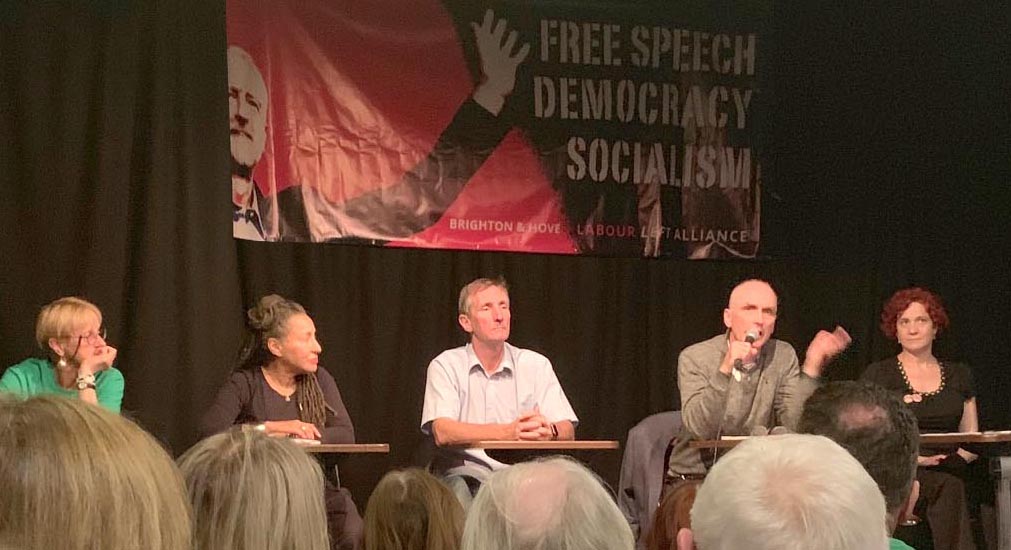
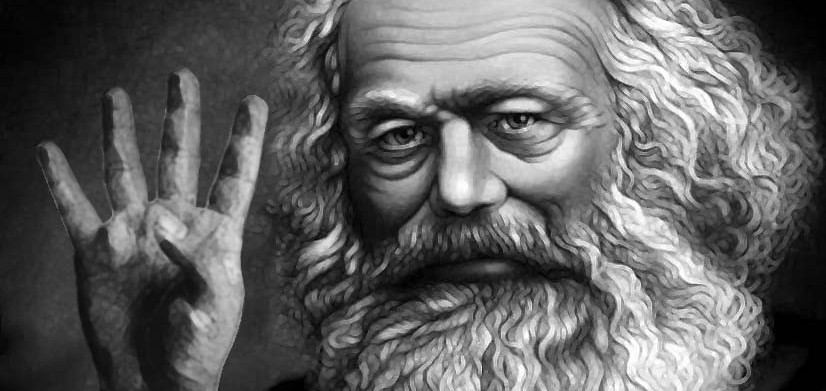


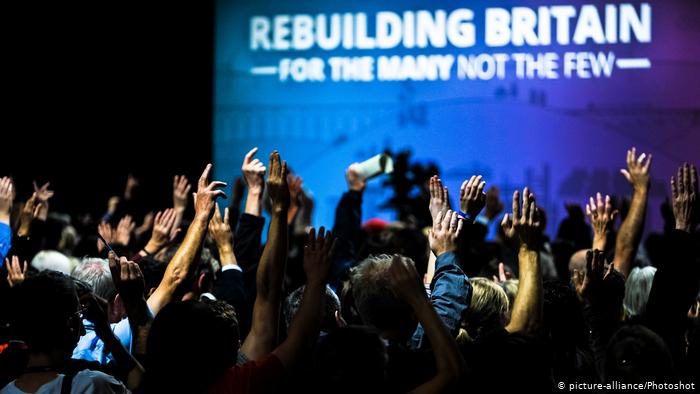
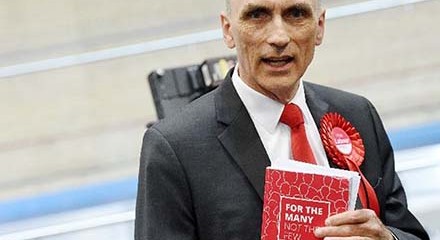
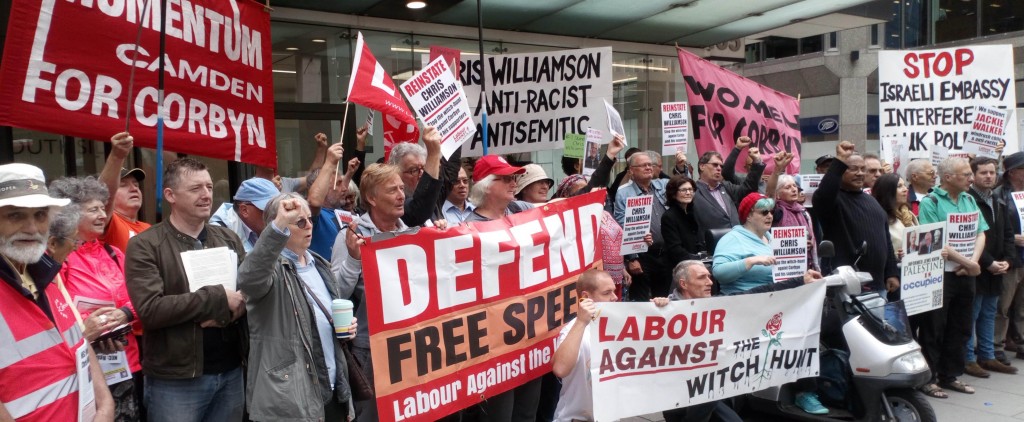 Incredibly, this will be the third panel dealing with Chris’s case. As we reported last week, the first one was to be made up of Momentum owner Jon Lansman, Claudia Webbe and ex-MP George Howarth. We can just about imagine the furore if such an ostensibly leftwing panel had voted to send Williamson – who is hugely popular amongst the membership – to the national constitutional committee (NCC). This is where the NEC outsources all the disciplinary cases that it cannot/does not want to deal with. Despite this body’s recent expansion from 11 to 25 members, it is still dominated by the right; the three person panels are ‘traditionally’ made up of one leftwinger and two rightwingers. No wonder that a referral to the NCC usually results in expulsion – which is how it got its well-deserved epithet of ‘national kangaroo court’. Both Webbe and Lansman chickened out, leaving it to a second panel to rule on the case. As we know, Huda Elmi and Keith Vaz both voted for Williamson’s reinstatement, which was followed by a very PR-effective outcry by the right, mobilised by chief saboteur Tom Watson (whom Steve Hedley, assistant general secretary of the RMT union, quite rightly called “a scoundrel” that “the members should get rid off” at the lobby outside).
Incredibly, this will be the third panel dealing with Chris’s case. As we reported last week, the first one was to be made up of Momentum owner Jon Lansman, Claudia Webbe and ex-MP George Howarth. We can just about imagine the furore if such an ostensibly leftwing panel had voted to send Williamson – who is hugely popular amongst the membership – to the national constitutional committee (NCC). This is where the NEC outsources all the disciplinary cases that it cannot/does not want to deal with. Despite this body’s recent expansion from 11 to 25 members, it is still dominated by the right; the three person panels are ‘traditionally’ made up of one leftwinger and two rightwingers. No wonder that a referral to the NCC usually results in expulsion – which is how it got its well-deserved epithet of ‘national kangaroo court’. Both Webbe and Lansman chickened out, leaving it to a second panel to rule on the case. As we know, Huda Elmi and Keith Vaz both voted for Williamson’s reinstatement, which was followed by a very PR-effective outcry by the right, mobilised by chief saboteur Tom Watson (whom Steve Hedley, assistant general secretary of the RMT union, quite rightly called “a scoundrel” that “the members should get rid off” at the lobby outside).